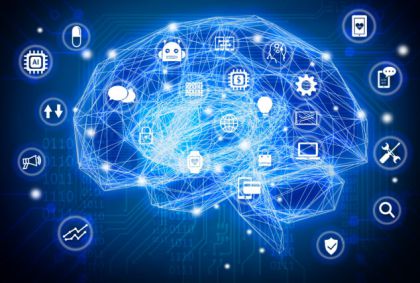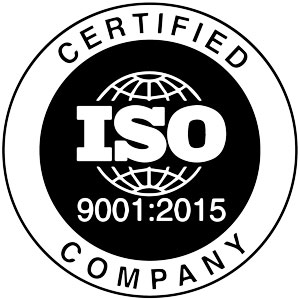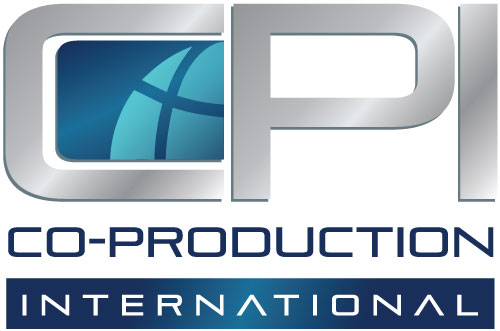Click to Discover the Top 10 Mexican Cities for Quality of Life in 2024: Key Insights for Manufacturing Expansion

4 industries that will be transformed by machine learning in 2017
- Hits: 296
Machine learning has become a huge trend in the technology industry in the last few years, as a more accessible side of artificial intelligence, with computers learning to complete tasks without being directly programmed to do so.
In 2016 there were many machine learning pilots and trials in the industry, with acquisitions of machine learning start-ups by tech giants. Deep learning, a branch of machine learning that produces efficient algorithms to model high level data, is also becoming mainstream.
2017 will be the first year we’ll start seeing real-world impacts from machine learning technologies, with companies moving out of the acquisition stage, and into the implementation phase.
Self-driving cars
Perhaps the most popular application of machine learning in the consumer field of vision is in driverless cars technology. Many of these cars are currently in the testing phase, but the idea of self-driving cars on public roads is in its infancy.
As self-driving cars take to the road, it will prove essential that they are able to respond to the situations around them in real time. This means that all the information gained through the sensors must be processed in the car, rather than being submitted to a server or the cloud for analysis, which could cost crucial time.
As a result, machine learning will be central to the car’s digital infrastructure, enabling it to learn from the conditions it observes. One particularly interesting use of this data will be in mapping – while self-driving cars can have maps programmed on to them, they will need to be able to update these maps automatically in response to the real-world conditions, and the vehicle will have to learn a new navigational network on its own.
Manufacturing
Like self-driving cars, the manufacturing sector collects a huge amount of data from sensors attached to every aspect of the production line during the growth of the IoT.
However, that information simply isn’t being fully utilised. As multiple parameters data is collected from complex systems, analytics can be a daunting task. The biggest application of machine learning in manufacturing will be in anomaly detection.
While earlier some analytics was done in this space, 2017 will see more of supervised learning and building models to predict the failures.In 2017, machine learning will also be used to drive collaborative robots proof of concepts in factories that can learn by observing the production line and data streams, and be able to smartly optimise the production process to lower production costs and speed production cycles without the time and financial costs of a human having to analyse the data.
Finance
The financial industry is renowned for the vast amounts of data it holds – from transaction data to customer data, and everything in between. This volume is unlikely to decrease in the future, and the finance sector is increasingly looking to make the most of the data that it holds. To date this has been largely analysed using statistical analysis tools, however, the challenge is sorting through such a wealth of data in a timely fashion.
In 2016, there was a lot of talk in the industry about the potential for deploying machine learning and several pilot schemes, and we predict that 2017 will be the first year we see this beginning to take off as mainstream in finance.
Financial institutions will increasingly lean on machine learning to devise new business opportunities, deliver customer services and even detect banking fraud as it is taking place.
Portfolio management companies today use traditional methods like analysing margin profiles, free cash flow, return ratios, growth profile, pricing power that are available through reports.
Machine learning in the meantime can help to scout social media, websites and other sources, analysing unstructured data to get some additional inputs and make better decisions.
Retail
The science of online recommendations has become increasingly complex, however, in 2017, this will become even more nuanced as more data streams such as social media are incorporated to provide better recommendations.
If you were to browse for cat food online, at the moment, you may be able to see recommendations for cat-related products. In the coming year, e-commerce sites will be able to use more buying trends and customer data to provide nuanced recommendations that will accurately reflect products you might like to buy.
While online retail is already experiencing the early stages of machine learning deployment, one of the most exciting things we’ll see in 2017 is the application of this technology in the physical store environment.
Retailers will be able to analyse customers as they walk in, and we will start to see this analysis used to help the customer find the right products and appropriate offers. With the incorporation of video analytics, retailers will be able to analyse which products people are looking at, and even where they are looking on the product – whether that’s the price, the features or the picture on the box.
By considering this data against customer purchases, retailers will be able to make the best recommendations for other products that the customer may want to consider.
Developments in technology
In order to support industries in transformations, the big developmental shift we will see in machine learning in 2017 is one of hardware upgrades rather than software.In order to support the speed of insights that machine learning can offer, machine learning processing is increasingly moving from the cloud to edge computing where time-sensitive information can be processed as close as possible to its origin.
Alongside this, we are seeing increasing investment in multi-core technologies and parallel computing that can boost this speed further. 2017 is the year that hardware begins to catch up with software in the wider deployment of machine learning technology e.g. enhancements in GPU technologies coupled with hybrid systems like CPU+FPGA.
Machine learning is beginning to affect us both at work and at home, and the possibilities for industries are truly transformative. Enterprises will soon find machine learning at the heart of decision making in core business processing and automation, as bots increasingly take on tasks for IT and business processes.
As infrastructure becomes able to support increasingly fast and effective machine learning applications, 2017 will be the year businesses begin to see machine learning as a core technology, moving out of pilot schemes and towards full scale operation.
Sourced by Vijayakumar Kabbin, general manager, embedded products and Internet of Things, product engineering service, Wipro Limited








